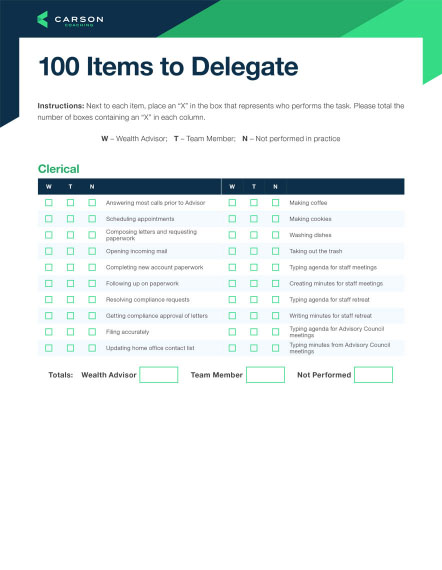Sprinting to the end of 2020 is different from sprinting to the end of previous years. It seems messier – less predictable. Just look at the last eight months. No, really, look at them. We went from ignorance, to admission, to denial, back to admission (repeat). We adjusted and overcame, had some good days and bad. Now here we are, having to finish out the year as strong as possible.
The sprint to the finish this year is complicated. Here’s what we suggest that you do to prepare.
1. Assess what controllable things went right and what went wrong.
You can’t assess what you had no control over. However, you can assess the controllable factor of how you and your team adapted to the uncontrollable thing that happened.
Controllables:
- Contingency planning for not being able to work in the office. Looking back a year, this might have sounded like a ridiculous thing to plan for, but maybe not. Even before COVID-19, we have coached advisors who have dealt with flooding, fire and power outages that have disrupted their ability to work in the office. Make plans that address technology (computer, phone, wifi), systems, and a communication plan (team and clients). Having only paper files in the office would be an example of poor planning for a disaster contingency.
Non-controllables:
- Contingency planning for everyone on your team having to work from home, while having to also adapt to homeschooling. Until COVID-19, this would have been too close to the end of a contingency bell curve to plan for.
- You or a team member had an accident or medical event that caused you or that person to be out of work, possibly an extended period of time.
The important thing to focus on is how whatever happened affected the service your clients received and how you can make adjustments that allow you to continue to serve them at the highest level.
2. Prepare for the unknown.
This is the flip side of looking backward at your contingency planning. You should be ready to react to new news. What would you do if:
- There is an unexpectedly quick (or slow) development of a safe vaccine.
- You or a key team member can’t work for a period of time due to an accident, prolonged illness, etc.
3. Clean up foundational issues that will keep you from moving forward with purpose.
Foundational issues generally fall into a few categories: systems, staff and clients. The question should always be, “Would I put this system into place, hire this person, or bring on this client if I knew everything about them/it?” We often hold onto “good enough” for too long out of inertia or loyalty.
Remember, it is almost impossible to have an A+ firm with too many B or C systems, people or clients.
4. Reset goals, deploy systems, and create the necessary habits and tracking plan to meet those goals.
At Carson, we have used a 100-day “Sprint to the Finish” model in which you assess where you are compared to the goals you set at the beginning of the year. These could be AUM or net new assets (NNA) or even paring down the number of clients that you are personally working with.
COVID-19 has thrown a wrench into the works for many advisors. But now that you have made your process adjustments and hopefully have your feet under you, you can reassess to see what progress you have made and what you still need to accomplish.
Additionally, let’s say you have had a great AUM growth year – many advisors have – and you want to update your goal. Now is the time to do it!
5. Prepare for the election effect.
The reality is that nobody really knows who will win or what it would mean, and studies show that there is no predictable election effect. But acknowledging that clients are thinking about it is important.
Be Aware of Your Surge Capacity
Keep in mind that you will be planning for a sprint to the end of 2020 when your “surge capacity” is already depleted, so show yourself and your team grace.
During normal times you might do really well in stressful situations. You might have thrived while others cracked. But over time, that can become more challenging.
I was coaching an NYC advisor who, less than a week after Hurricane Sandy, rallied her team to provide food and gasoline to people in the most affected areas. I recently spoke to her, and she acknowledged feeling, in her words, “COVID-19 beatdown.” I told her about an article I read about surge capacity, which describes the difference between short-term incidents and long-term situations, like COVID-19, that chronically drain on your mental and physical systems.
I asked her how she handled the COVID-19 fallout when it first disrupted her life. Unsurprisingly, she indicated that she handled it well. Transitioning to the remote office worked out well. Homeschooling her kids wasn’t easy, but she made it work. Her more recent assessment of “COVID-19 beatdown” perfectly aligned with the depletion of her surge capacity.
Remember this as you plan and execute your sprint to the end of 2020. Allow yourself and your team members to “feel the feelings.” If you need to, take a long weekend to do something you love. It could help reset your surge capacity just enough to feel better and get back on track.
No matter the outcome of the election or development of the unexpected, the preparation will require adaptability. The good news is that you and your team have done so much work to adapt that you are more ready for it now than ever before!


